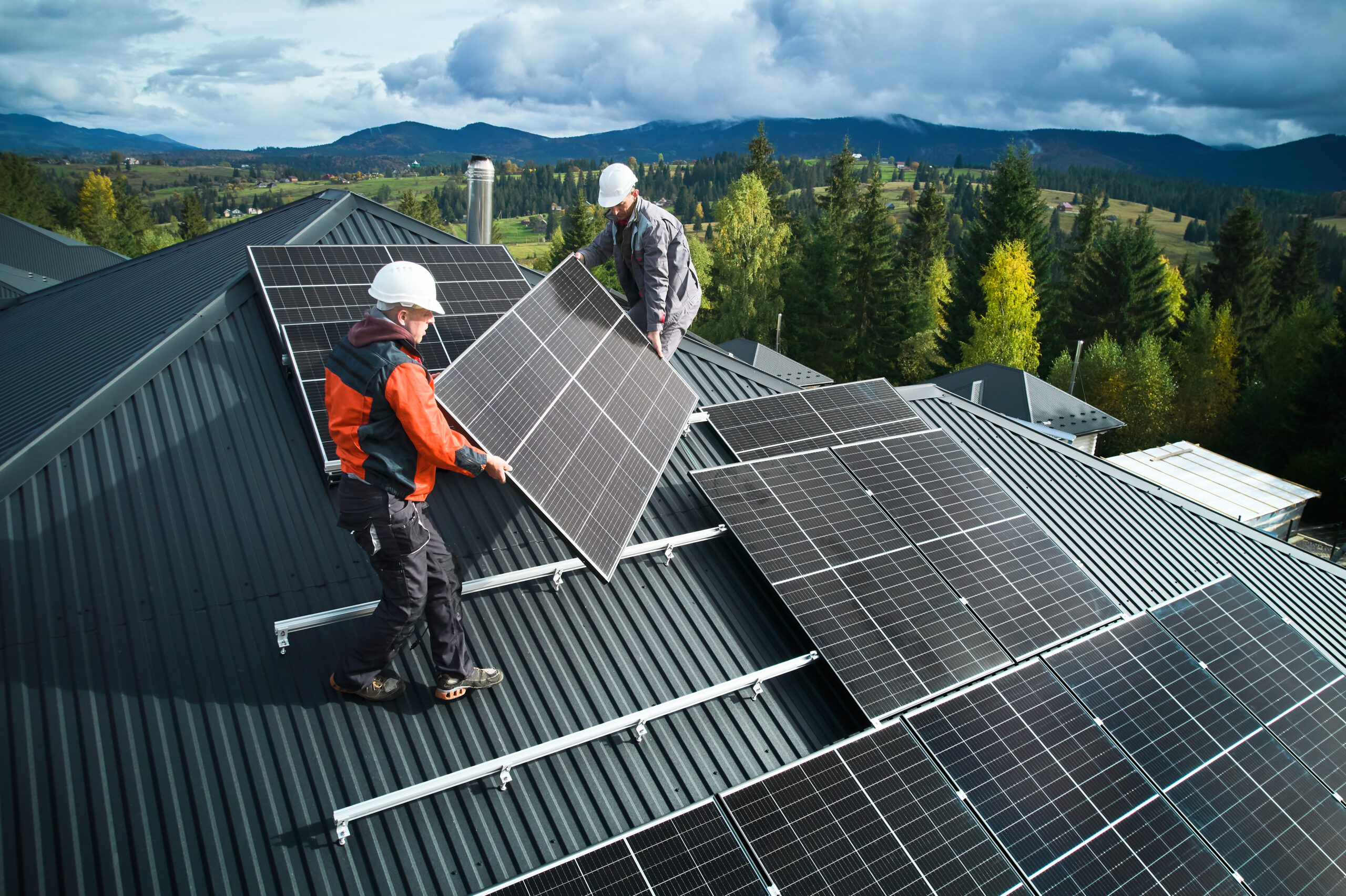
The Effectiveness of Residential Solar Panels: A Homeowner’s Guide
Solar panels have become an increasingly popular choice for homeowners seeking to reduce energy costs and contribute to a more sustainable future. But how effective are they for residential use? Understanding their performance, benefits, and limitations can help you make an informed decision.
In this guide, we’ll explore the effectiveness of solar panels, factors that influence their performance, and why they’re a smart investment for homeowners in Nova Scotia.
How Do Solar Panels Work?
Solar panels are composed of photovoltaic (PV) cells that convert sunlight into electricity. When sunlight hits the panels, it generates a direct current (DC), which is converted into alternating current (AC) by an inverter, making it usable for your home. Surplus energy can be sent back to the grid through net metering programs, earning you credits for future use. In Nova Scotia, these credits are valued at 100% of the market rate, allowing you to fully offset your electricity costs during times of lower solar production.
How Effective Are Solar Panels in Residential Settings?
The effectiveness of solar panels depends on several factors:
1. Solar Irradiance and Climate
Nova Scotia may not be known for endless sunny days, but modern solar panels are optimized to perform well even in less-than-ideal conditions. They are built to generate electricity on cloudy days and maintain efficiency in cold temperatures, with snow typically sliding off due to the panels’ tilt, ensuring consistent energy production. While their peak production occurs on sunny days, panels still generate electricity on cloudy days, albeit at reduced capacity. Snow may block sunlight temporarily, but the tilt of the panels ensures that snow slides off naturally.
2. Energy Production
A well-designed residential solar system can meet 60–100% of a home’s energy needs, depending on system size, energy consumption, and sunlight exposure. Homeowners typically experience substantial reductions in their electricity bills.
3. Panel Efficiency
Modern solar panels convert 15–22% of sunlight into electricity, with high-efficiency models offering better performance over time. These systems are durable, with a 25+ year lifespan, making them a long-term investment in energy savings.
4. Seasonal Performance
Cold climates like Nova Scotia’s can actually enhance solar panel efficiency. Photovoltaic cells perform better in lower temperatures, meaning that crisp, sunny winter days can still yield strong energy production. Additionally, snow on panels typically slides off due to their tilt, minimizing any potential obstruction to sunlight.
Factors That Impact Solar Panel Effectiveness
1. Roof Orientation and Tilt
For optimal performance, solar panels should face south to maximize sunlight exposure. The tilt should match your latitude to capture sunlight throughout the year.
2. Shading and Obstacles
Trees, chimneys, or nearby buildings casting shadows on your roof can reduce solar energy production. A professional assessment can determine the best positioning to mitigate these challenges.
3. System Size and Energy Needs
Choosing the right system size based on your energy consumption ensures you maximize the benefits. Without batteries, any excess energy produced during the day is credited back to your account via net metering, making it available to offset nighttime electricity use from the grid.
Why Solar Panels Are a Smart Investment for Nova Scotia Homeowners
1. Cost Savings
Solar panels significantly reduce electricity bills, with many homeowners saving $1,000 or more annually. With a system lifespan exceeding 25 years, these savings add up over time.
2. Government Incentives
Programs like Nova Scotia’s SolarHomes rebate and the federal Greener Homes 0% interest loan make installing solar panels more affordable than ever. Homeowners must complete a Home Energy Assessment (HEA) to qualify for these programs, with rebates capped at $3,000 under the SolarHomes initiative. These initiatives help reduce upfront costs, enabling more homeowners to transition to renewable energy.
3. Environmental Impact
Switching to solar power reduces your carbon footprint by lowering reliance on fossil fuels. It’s a step toward sustainability and a cleaner, greener future for Nova Scotia.
4. Energy Independence
Solar panels provide a degree of independence from rising electricity rates and grid reliance. Although solar systems connected to the grid do not operate during power outages for safety reasons—to protect utility workers repairing the lines—they help you gain control over your energy costs while reducing dependence on traditional energy sources. For added reliability during outages, many homeowners consider backup generators or hybrid systems with battery storage.
Is Solar Energy Right for Your Home?
To determine whether solar panels are a good fit for your home, ask yourself:
- Does your roof have good sun exposure with minimal shading? A professional assessment can help determine the best placement for panels, ensuring optimal energy production while accounting for any shading or structural challenges.
- Are you looking to reduce electricity bills and reliance on traditional energy?
- Do you want to contribute to environmental sustainability while increasing your home’s value?
If the answer is yes, solar panels are an excellent option for you.
Conclusion
The effectiveness of residential solar panels depends on factors like proper installation, roof orientation, and energy needs, but they offer substantial benefits for homeowners. From reducing energy bills to fostering sustainability, solar energy is a valuable long-term investment.
Curious about how solar panels could work for your home? Contact Maritime Solar today for a personalized consultation and discover the benefits of solar energy tailored to your needs.
We’d Love to Hear From You!
What questions or concerns do you have about solar panels? Share them in the comments below, and let us help you explore how solar energy can transform your home!
continue reading
Related Posts
Author: Mariela Guanchez Let’s face it: When you first
As solar energy continues to gain popularity across Canada, more
As energy costs continue to rise, many homeowners are turning



